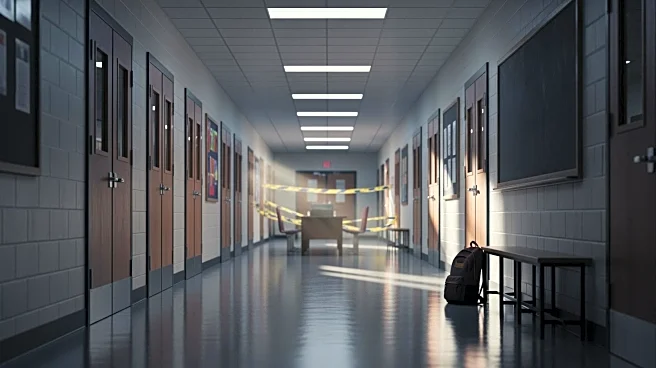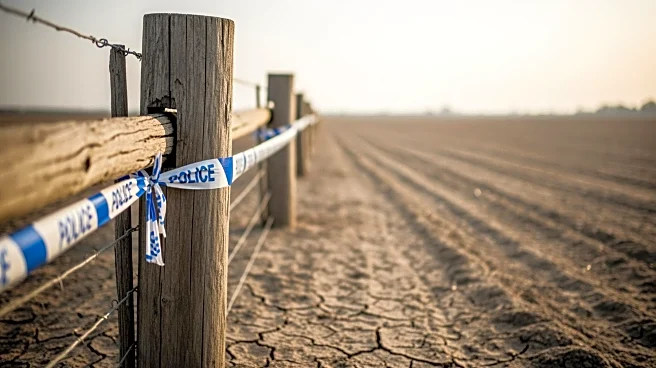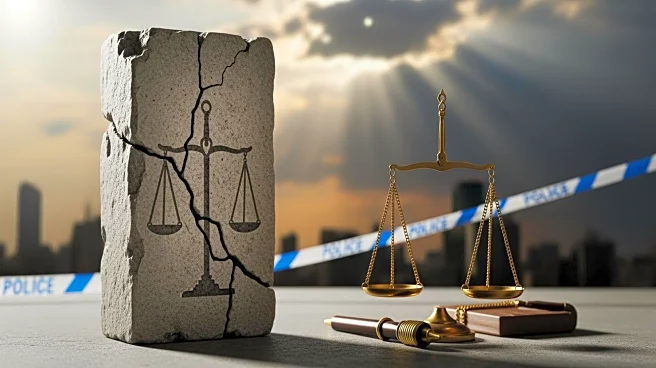What is the story about?
What's Happening?
The United Nations has called for accountability from Israel following a 'double-tap' bombing of Nasser hospital in Gaza, which resulted in the deaths of 20 individuals, including five journalists. The UN's human rights office spokesperson, Thameen Al-Kheetan, emphasized the need for justice, particularly concerning the targeting of media workers. The hospital, the last functioning public facility in southern Gaza, was struck twice on Monday. The second strike occurred as rescue teams and journalists arrived to assist the wounded, leading to further casualties among first responders and media personnel. The incident has raised significant concerns about potential war crimes, given the targeting of a hospital, journalists, and rescue workers.
Why It's Important?
The bombing of Nasser hospital and the subsequent deaths of journalists highlight serious concerns regarding the conduct of military operations in conflict zones. The targeting of media workers raises questions about press freedom and the safety of journalists in war-torn areas. This incident could strain international relations and prompt calls for stricter adherence to international humanitarian laws. The UN's demand for accountability underscores the global expectation for transparent investigations and justice for unlawful killings, which could influence future diplomatic engagements and humanitarian efforts in the region.
What's Next?
Israel may face increased international pressure to conduct thorough investigations and provide accountability for the hospital bombing. The UN and other international bodies might push for sanctions or other measures if satisfactory actions are not taken. Additionally, ongoing protests in Israel could influence domestic policy and the government's approach to the conflict in Gaza. The situation may also affect Israel's diplomatic relations, particularly with countries advocating for human rights and international law compliance.
Beyond the Headlines
The incident at Nasser hospital could have long-term implications for media coverage in conflict zones, potentially leading to increased risks for journalists and changes in how media organizations operate in such areas. It also raises ethical questions about the protection of civilian infrastructure during military operations and the responsibilities of nations under international law. The broader impact on public perception of the conflict and humanitarian efforts in Gaza could shift, influencing future international aid and intervention strategies.














